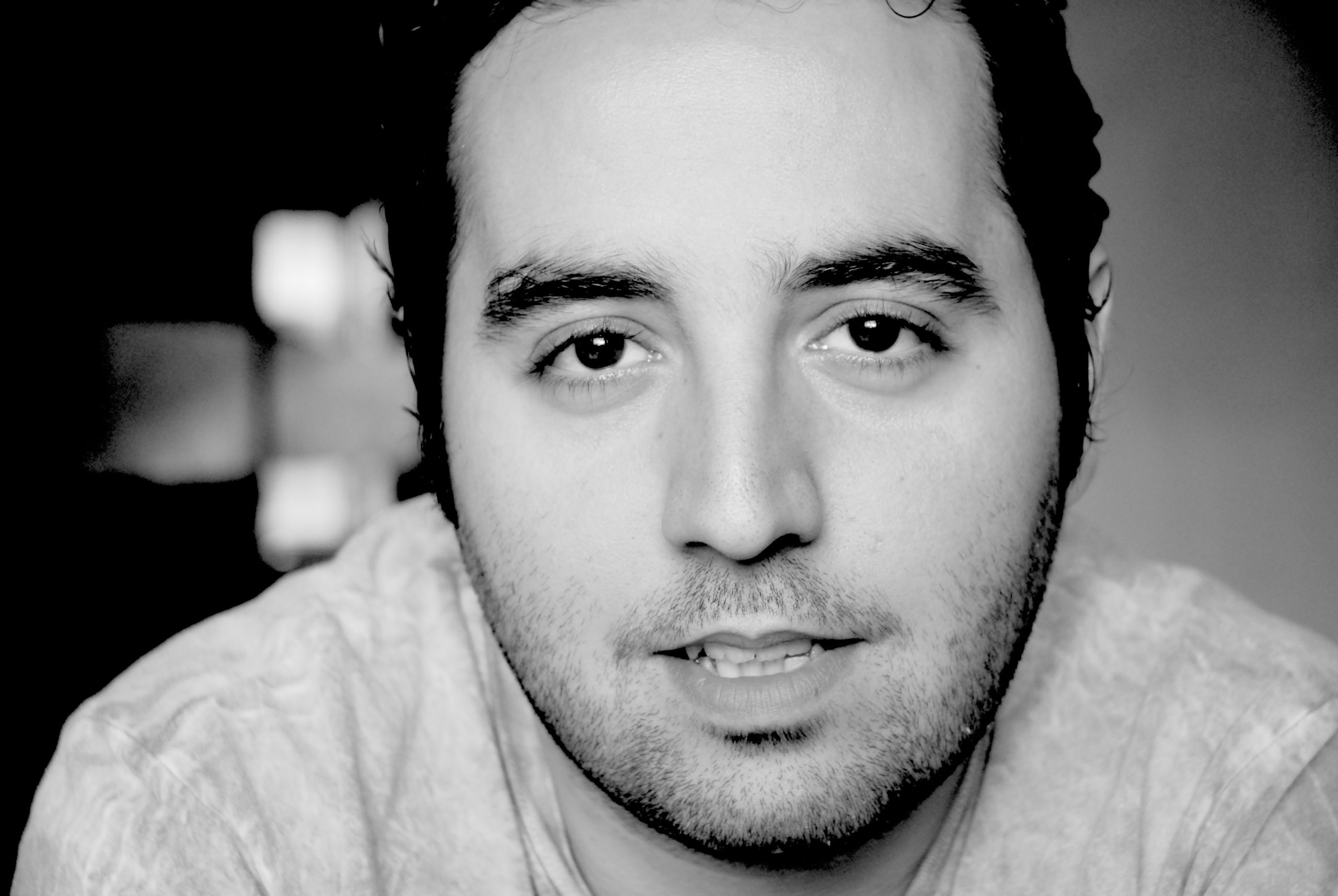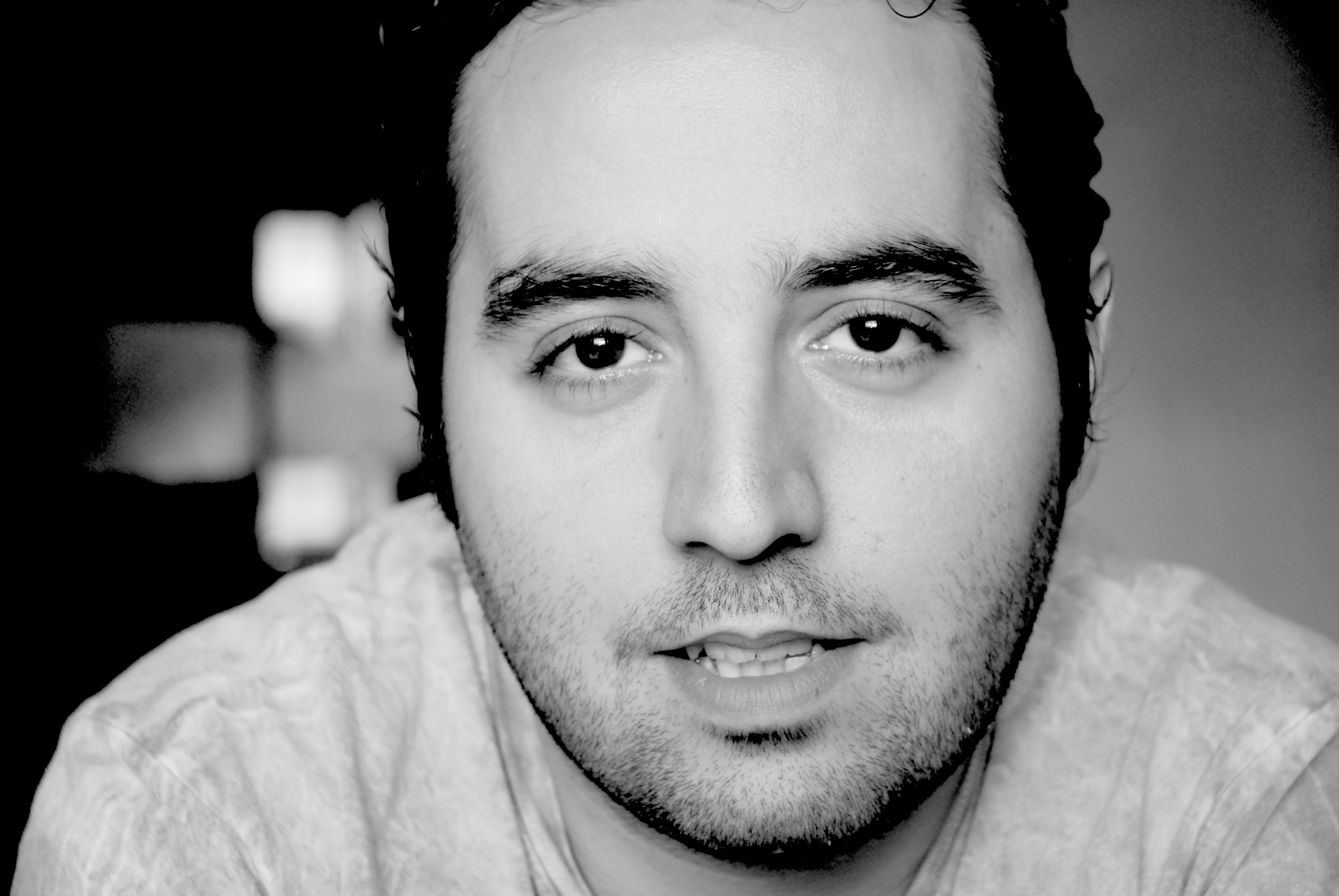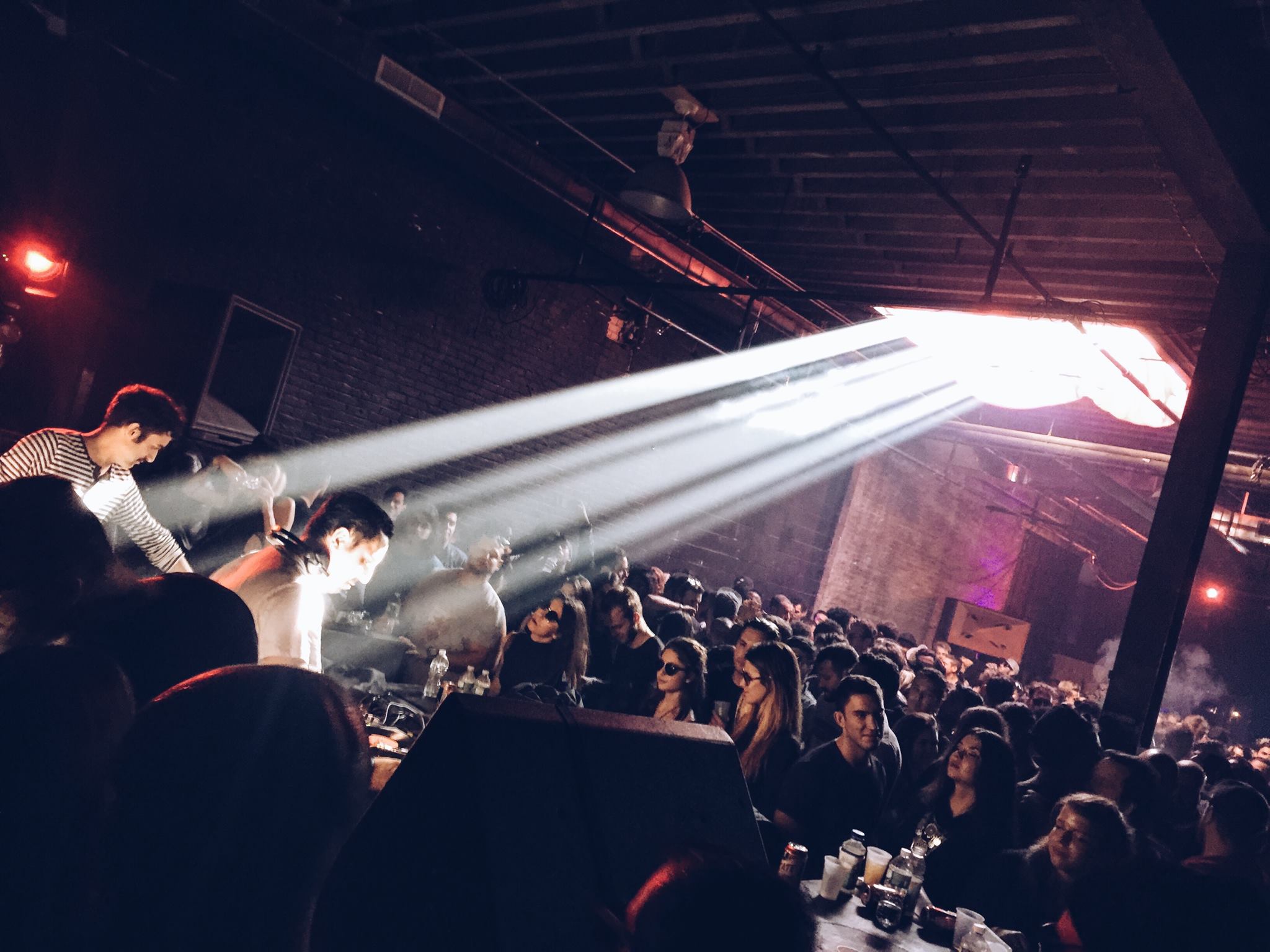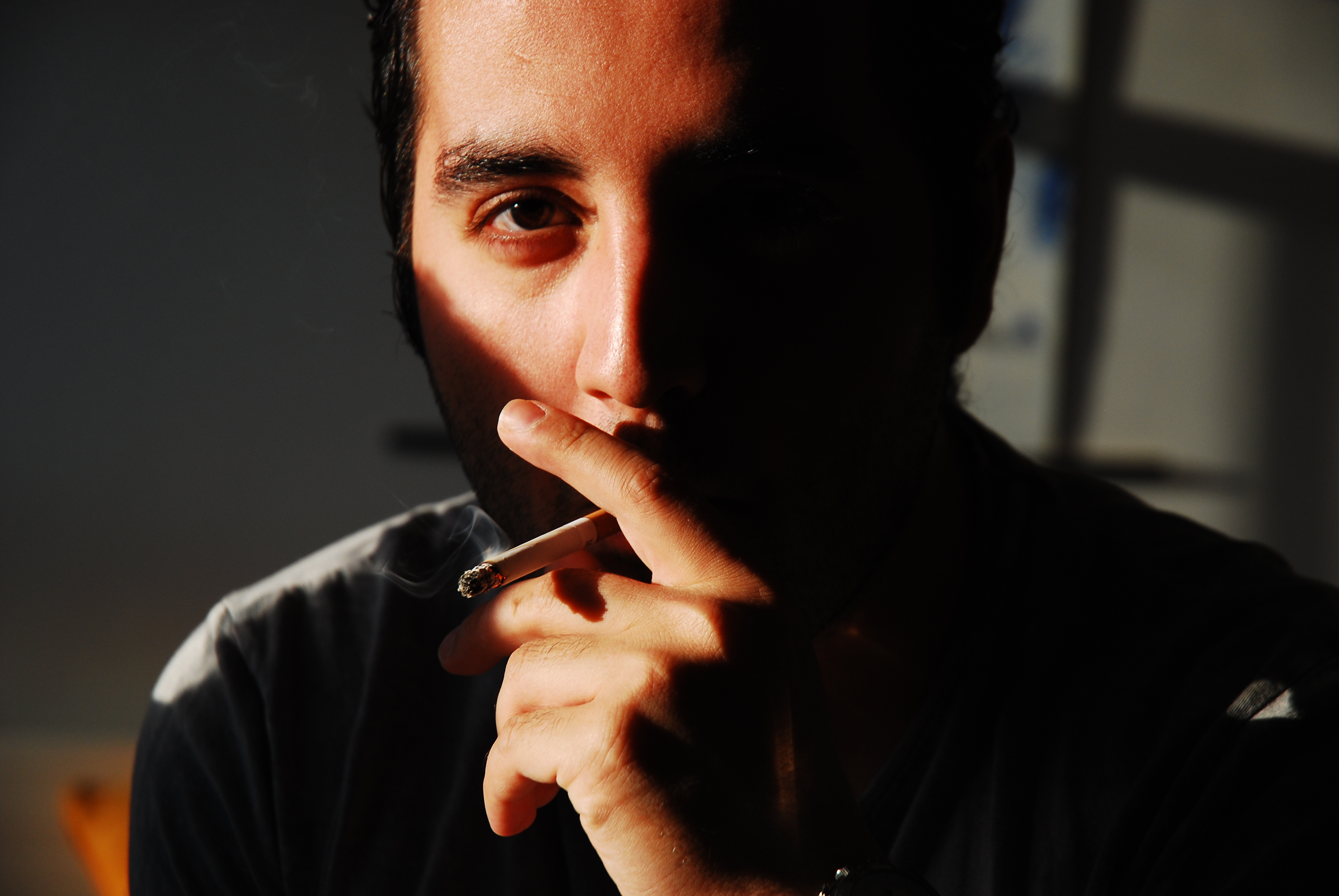Get Familiar: Amir Javasoul
One of Montreal's most gifted selectors speaks on upcoming projects and the role of a DJ in the modern age.

Get Familiar: Amir Javasoul
One of Montreal's most gifted selectors speaks on upcoming projects and the role of a DJ in the modern age.

Montreal-based Amir Javasoul is another immensely gifted selector that you may not yet have heard of. Having grown up in Iran, he moved to Montreal at the age of 10 where he learned the ropes of DJing after a Derrick Carter set sparked a long- standing affinity wth the profession. Since then, for the past 20 years, he’s been balancing his work as a computer engineer with an active touring schedule, both in North America and Europe, where he has held residencies at some of the world’s finest clubs. Yet, still, he remains much less of a household name than those with whom he regularly plays alongside, operating in the peripheries rather than in the limelight. Part of this, indeed, may well be down to his limited discography: Javasoul’s profile has not been supported by a release on a well-known label; rather, he has taken the organic route, finding acclaim through his skills in the booth alone.
Things, however, continue to progress. Only last week he announced a series of North America shows alongside Ricardo Villalobos, a friend with whom he has recently shared plenty of studio time—the results of which he promises will be revealed soon. Javasoul also continues to develop his studio skills, both solo and in collaboration with Maher Daniel as Creatures of Habit; and he also has an exciting project with Archipel Musique Canada boss Pheek on the way. In addition to this, further European gigs, both alongside Villalobos and without, are expected to be revealed in due course as Javasoul’s profile continues to grow both at home and abroad.
In advance of his performance at this year’s SXM Music Festival in St.Martin, XLR8R took the time to speak with Javasoul about these upcoming projects and his thoughts on the role of a DJ in the modern age. In advance of this year’s event, Javasoul has also compiled a 60-minute “afterparty mix” which is downloadable in full via the WeTrasnfer button below.
So you were born and raised in Tehran, Iran–how did your relationship with music begin?
I was in Iran until about the age of 10 until I moved to Canada. In Iran, we didn’t have access to much popular music but I was definitely an early fan of Michael Jackson and Prince from an early age. Then, when I moved to Canada, electronic music wasn’t the first genre that I jumped on; instead, I grew up on hip-hop and then the logical progression towards electronic music happened in my teenage years—in the mid-‘90s.
So where does your love for vinyl originate from—did your parents have a large record collection?
No, that is actually something that I started myself. I was always interested in all genres and mediums of music, and then when I first started getting an allowance from my parents at 15 years old, I spent it all on vinyl. If I had 20 dollars then I would work out just how many records that I could buy with that.
Did your love for collecting records start long before you actually started to DJ?
Yes—but not long before; they both happened around the same time. I started buying music before I was a DJ but the majority of vinyl collection—which is around 8,000 pieces—is made up of records that I’d use in my sets.
Can you remember the first record that you bought?
The first vinyl that I bought was Michael Jackson’s Thriller—but I remember that the first electronic record I bought was Café del Mar’s Energy 52. It’s strange because it’s a huge trance anthem and very different to what I play now. It still has my parents’ phone number on it because I ordered it at the store.

So when did your taste start to change to the music that you play today?
I always divide my musical development and evolution into three distinct phases and people.
The first one, and the reason why I DJ now is because of Derrick Carter—he is my number one inspiration, as far as production and DJing goes. For me, Chicago house is the foundation for what I and most of us DJs do. I feel that the music we are making today is just a progression of that Chicago house. After that, I had another breakthrough moment within myself when I discovered DJ Harvey; and, after that, when I moved to France in 2001, I discovered Ricardo Villalobos.
I assume that this music development—this journey—is something that you credit for your success because you continue to play records from the whole spectrum.
Very much so. I am very proud of my journey as a DJ, especially because I have spent the time researching music and bridging the gaps between this genre and that genre. If you ask any proper DJ, they’ll say that this musical research is a never-ending quest; we’re all driven to continue finding new music. And if you hear me today, you’ll hear this; there will always be elements of old Chicago house records with some new Perlon material, for example, along with some of the new stuff that the Romanians are producing. I think this is what makes me different from someone who only plays one style.
Yes. We just released a Real Talk feature with Honey Dijon where she says that many people today are looking for a quick route to becoming a DJ—they want a quick answer or solution instead of accepting that the route to becoming a DJ is a journey that requires a deep musical education.
It’s true. It’s so easy to become a DJ nowadays; with the new computerized formats anyone can learn to beat match, or the computer will even sync it for you. Because of this, I feel that we’ve now lost the art of searching for music and the record digging part—where you hear a track and you spend weeks looking for it. I don’t want to generalise because there are still younger DJs out there doing their homework, who will spend a lot of time researching labels and producers—but for the most part, it’s become so easy that many DJs aren’t educating themselves on artists, labels, and all that stuff.
“I am happy that lots of these producers and labels are making their music a little bit harder to research or access, by releasing on vinyl or not promoting it. If it wasn’t this way then everyone could go on Beatport and just download the top 50 tracks to play out. Because of this, the quest is still alive.”
It’s a slow process.
Exactly. It’s a slow and steady process. I’m very excited by a lot of music coming out of Romania or Berlin, to give examples—and I am happy that lots of these producers and labels are making their music a little bit harder to research or access, by releasing on vinyl or not promoting it. If it wasn’t this way then everyone could go on Beatport and just download the top 50 tracks to play out. Because of this, the quest is still alive.

Talk to me about how active you are in finding records. Do you have a close-knit circle of friends that you share music with?
My whole process changed a few years ago when I decided to start buying vinyl again and to stop spending so much time on the digital front. Having said that, I am part of a community of DJs and artists where we exchange digital music with each other, but I have given up on the purchasing of digital music—I spend that effort and money on vinyl now, so I will go vinyl shopping online and in each city that I am in. Most of the digital records that I play out will be unreleased demos or reworks that have come from this community.
“…when I was playing digital I was getting lost in it. I was receiving so much digital music and it was just piling up on my computer, and I just didn’t have a connection with it for more than a week or two.”
I like it what you said in your fabric interview about you having a relationship with each one of your vinyl records—that you can look at it and recall the artist, label, name, and where you played it—that doesn’t exist with digital files.
It’s true. I don’t want to put down the digital format at all, but when I was playing digital I was getting lost in it. I was receiving so much digital music and it was just piling up on my computer, and I just didn’t have a connection with it for more than a week or two. It bugged me because I didn’t know how to organize it, and I still don’t really know.

Going back to the start, how did you actually learn to DJ in the first place?
To sum it up honestly, I learned through watching Derrick Carter—he was the first person I looked to as a technical reference. I was happy and blessed to watch him play regularly in Canada, and then after a while we became friends and I had direct access to him, and he taught me a lot during the mid-2000s. I learned from the best, and then the rest has been practice.
You’ve supported some fine artists over the course of the past few years– including Rhadoo, Ricardo Villalobos, and Craig Richards. Do you feel that you’ve learned a lot from them too?
Absolutely. The guys that you just mentioned all have this ability to surprise me and they continue to inspire me even though I’ve been playing for over 20 years. They put that spark in me where I get surprised and I’ll be a kid on the dance floor again.
It’s funny that you call it an element of surprise—I think that’s exactly what it is.
It is. Actually, I have a nice anecdote about this: the first time I played Fabric two years ago, I had the opening slot before Craig Richards and then Ricardo. I had just finished my three-hour set and Craig was coming. Usually, after a three-hour set at Fabric, you want to go and have a breather—and I was about to do this, but record after record I just couldn’t leave. He just kept me so intrigued and engaged that I couldn’t pull myself away.
From the outside in, it feels that your time in Paris, from 2001, was a defining period in your DJing development–because you held various residences and also traveled more frequently. Is this the way you see it?
In the late ‘90s I was starting to play in Montreal, but Paris is definitely where it became more of a job, in a sense. I left Montreal to Paris in 2001, and I moved to Paris where I didn’t really know anybody whatsoever. Again, it was Derrick Carter who bridged the gap for me in Europe, because he introduced me to his crew in London at the time—and then I started playing some of these parties. Derrick then came to play in Paris with me, which opened up a lot of doors, and from there it was just a natural progression. I met the Apollonia guys and then it just took off.
You were working full-time when you moved to Paris, right?
I was working as a computer engineer, and I had both jobs for a long time. I had weeks where I was working all week and then playing on the weekends, which was quite a schedule. I still go back and forth between both professions; sometimes I will do both and sometimes I will do just music. I am lucky to have the opportunity to switch between both careers.
When did production start for you? Talk to me about the origins of Creatures of Habit, born in 2013, as far as I can work out.
Creatures of Habit is the partnership Maher Daniel and myself—as back-to-back DJ sets and for production. We started it three or four years ago, and then Maher moved to Barcelona while I am still in Berlin or Montreal. Whenever we’re in the same city we’ll work on music together, but I don’t believe in working remotely with someone for studio work—I am not really there yet, I don’t think. So it’s difficult for us to work on music but we have got some material on the way. We’re trying to put more time into it because we’ll be spending a month together in April.
You recently dropped a white label as “Unknown Artist” that was played out a lot–using as Prince sample, I understand. Is there a lot more on the way?
We’ve worked on music with Ricardo and have some edits that will hopefully surface soon. As far as original material, we have finished a couple of things, but that will be finalized when we are in the studio again together.
How and when did you learn to produce—and how comfortable do you feel with it?
I am a far better DJ than a producer. I am still very much in the learning process when it comes to production; despite having spent many years dabbing it at, I am nowhere near where I want to be. Like most people, I just learned by playing around with Ableton and I also have a few pieces of hardware—and that’s why it’s easier to work with someone like Maher, who knows how to work a studio. I often know exactly what I want in a track or a baseline, and it would take me a few hours to make it, whereas Maher can make it happen in 10 minutes.
“I am finally at a point where I am excited about production; now that I don’t have the pressure to produce an EP to get more gigs, I can now find fun just playing around in the studio.”
It’s interesting that you’ve made a career as a DJ without producing records. Why have you only started to produce now?
Yes. Even though DJing and production are related, they are two different skills— and there is something to be said for artists who stick to what they’re good at. For me, I am making music because I enjoy it, not for the sake of having more gigs. I am finally at a point where I am excited about production; now that I don’t have the pressure to produce an EP to get more gigs, I can now find fun just playing around in the studio.
You’re also working on new Waterclock project with Pheek. What’s this?
Before I left Berlin, Ricardo gave me hours of studio material that we’d done together over the course of the summer. His process is quite unique because he will sit in the studio and record everything on one channel and then go and edit it— which I find brilliant. With Pheek, we just reedit a few of those sessions into playable tracks.
You’re also playing with Ricardo over the next few months.
Yes! It’s always exciting to play alongside Ricardo as you never know what direction he’ll take in his DJ sets! This is exactly what I’m about as well. Also, we’re both big fan of older obscure Chicago or NY house records so there’s always a game going on as to who can surprise who with the odd hidden vinyl gem.
Are you very critical when it comes to your sets?
Yes, I am. But I am also confident when it comes to my DJing. It’s something that now comes naturally to me, as opposed to the production part which requires a lot of effort. It brings me a lot of joy because I can see that I can make a difference in a night. Because of this, I think it’s something that I will always continue to do, in some way or another.
It’s interesting that you have the balance with another job—because the love for DJing must fade of you’re touring each week, all over the world.
At some point, perhaps—and I have had that in the past where I have become slightly tired of the touring part, and I am not even traveling so much compared to a lot of my friends. But it has happened where I’ve had issues, and these are times where I’ve questioned the profession; however, today I am happy with where my DJ career is going.
Download SXM Festival mix below.
<a

